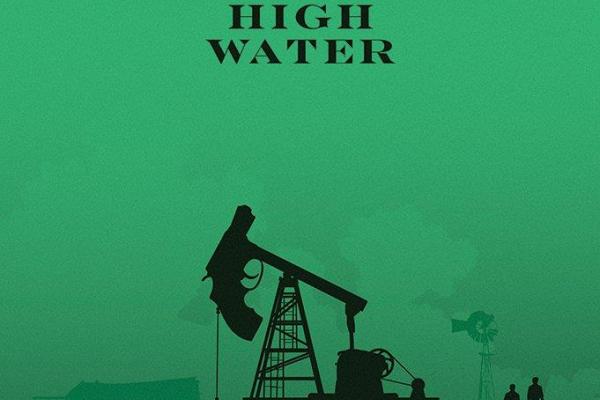A GRIZZLED LAW enforcement officer, days from retirement, looking for one last challenge. A team of bank robbers, one with noble(ish) motivation, the other psychopathic. Great American vistas to enforce the notion that what we’re watching is Important. So far, so clichéd.
But Hell or High Water, Taylor Sheridan’s script directed by David Mackenzie, brilliantly transcends such hokum in favor of utterly honest dialogue, a plausible plot, and real settings. The drama, as embodied in career-highlight performances from its leads, takes on an almost-Shakespearean gravity. Two brothers steal from a bank that’s been stealing from them. People get hurt, but they were hurting already, so who cares? And the Old Man of the West experiences the lack of resolution that may result from even the most dogged pursuit.
Marcus (Jeff Bridges) and Alberto (Gil Birmingham), Texas Rangers chasing bad guys, have known each other for years. Marcus ignorantly throws racial insults at Alberto, believing them to be affectionate, while Alberto quietly winces. The memory of land theft and genocide is in Alberto’s bones, his half-Mexican, half-Comanche personhood betrayed by the forebears of the very authority he seeks to uphold.
Meanwhile, Toby (Chris Pine) and Tanner (Ben Foster) rob branches of the bank that’s been trying to manipulate their family. Like all families, it’s a family with secrets, but the lack of healthy community bonds has allowed those secrets to wreak havoc on the lives of its members. There’s no support for moving beyond the trauma of a violent upbringing, just resignation to things as they are and belief that maybe a bit of money could get them out of it. A bleak Texas standing in for a bleak America, one in which the aching desire to connect is buried under economic desperation and get-rich-quick schemes. Even the church is in on it—a televangelist merely replicates the system of social inequality and betrayal of trust. People need help, but no one shows them how to ask for it.
Read the Full Article

